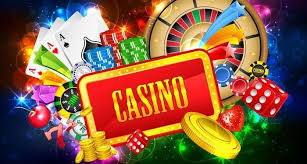
How to Win Big in Online Poker Tournaments
Online poker tournaments have gained immense popularity, offering players the chance to win substantial rewards from the comfort of their homes. With the rise of platforms like How to Win Big in Online Poker Tournaments https://jeetbuzz-login1.com, more players than ever are participating in these thrilling events. However, winning big requires more than just luck; it necessitates skill, strategy, and a thorough understanding of the game. This article explores effective strategies and tips on how to win big in online poker tournaments.
Understanding the Basics of Poker Tournaments
A poker tournament is a competitive event where players compete against each other to win a prize pool, which is typically apportioned based on players’ final positions. Players buy-in for a predetermined amount, which contributes to the overall prize pool. As players are eliminated, the field narrows, and the prize pool gets distributed to the remaining players. Understanding the structure, blind levels, and payout distribution is crucial for formulating a solid strategy.
Bankroll Management
One of the most critical aspects of playing poker, especially in tournaments, is effective bankroll management. Players should allocate a specific amount of money for tournament play and avoid using funds set aside for other expenses. A good rule of thumb is to ensure that your tournament bankroll can support at least 30 buy-ins for any given event. This approach allows for variance in outcomes and helps avoid going broke after a string of bad luck. Players should also set limits on how much they are willing to lose in a single day.
Choosing the Right Tournaments
Not all poker tournaments are created equal, and selecting the right ones to enter is essential for maximizing your chances of success. Consider factors such as the buy-in amount, the structure of the tournament, and the skill level of the players. Some players thrive in smaller fields, while others may be comfortable in massive multi-table tournaments (MTTs). Focus on finding tournaments that match your skill level and bankroll constraints.
Table Selection and Positioning
Your seat at the table can significantly impact your tournament performance. The best players are often those who can adapt their strategies based on their position. Playing aggressively from late position can allow players to capitalize on weaker opponents and steal blinds more effectively. Conversely, players in early positions should play tighter and only enter pots with premium hands.
Additionally, being aware of the table dynamics and adjusting your strategy accordingly can create opportunities to exploit weaker players. This might include isolating short-stacked opponents, or applying pressure to the more passive players at the table.
Understanding Opponents

Reading your opponents is crucial in poker, and this skill becomes even more critical during tournaments where the stakes are higher. Observing betting patterns, timing, and overall behavior can provide valuable insights into an opponent’s hand strength and playing style. Categorizing players as tight, aggressive, loose, or passive can help you formulate a strategy that exploits their weaknesses. For example, against a tight player, you might expand your range and play more aggressively, while against a loose player, you can afford to wait for stronger hands.
Adjusting your Strategy During the Stages of the Tournament
Tournaments tend to have different stages, each requiring a shift in strategy:
- Early Stage: In the beginning, players often have deep stacks, allowing for looser play and exploration of different strategies. Look to build your stack while remaining cautious of larger pots.
- Middle Stage: As blinds increase, players tend to tighten their ranges to protect their chips. This is when you can capitalize by stealing blinds and becoming more aggressive.
- Late Stage: When the tournament reaches its final phases, the value of each chip increases. Adopting a more conservative approach can be beneficial unless you feel confident in your hand. Being aware of stack sizes is crucial here.
Combatting Tilt
Emotional control is paramount in poker tournaments. Tilt, or playing recklessly due to frustration or anger, can lead to significant losses and ruin even the best strategies. Recognizing when you’re on tilt and taking a break if needed is essential. Engaging in relaxation techniques, such as deep breathing or visualization, can help maintain focus and clarity throughout the tournament.
Utilizing Software Tools
In today’s digital age, many poker players utilize software tools to enhance their gameplay. Programs such as HUD (Heads-Up Display) software provide statistics on your opponents, allowing you to make better-informed decisions. While some sites may have restrictions on certain tools, understanding software analytics can give you the competitive edge you need to identify opportunities and weaknesses in your opponents’ gameplay.
Practice, Practice, Practice
Ultimately, becoming a successful tournament player requires practice and experience. Regularly playing cash games, lower-stakes tournaments, or even studying poker strategy can all help in honing your skills. Additionally, reviewing your gameplay to identify mistakes and learning from them is crucial. Many successful players record their sessions, analyze key hands, and seek feedback from other players. Engaging in poker forums and discussions can also provide valuable insights into advanced strategies.
Conclusion
Winning big in online poker tournaments is achievable with the right mindset, strategies, and a commitment to continuous improvement. From effective bankroll management to understanding your opponents and adjusting your strategies as the tournament progresses, success demands diligent study and practice. By following the tips outlined in this article, you’ll be well-equipped to navigate the complex world of online poker tournaments and maximize your chances of winning big.




